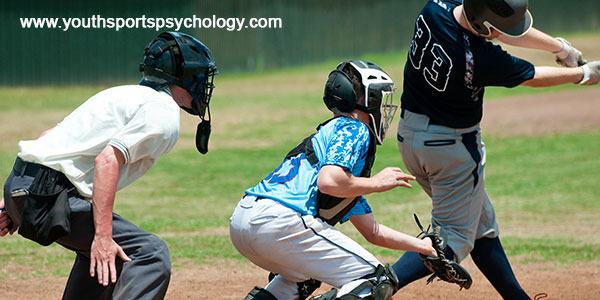Turn Negative Comments into Motivation
What fuels your sports kids’ motivation? Wins, personal bests, rewards, awards and compliments are positive ways young athletes are motivated.
When kids’ coaches, teammates or parents believe in kids, they will feel that extra spark and “go for it.
But what if others don’t believe in sports kids? Can athletes be motivated by disparaging remarks from others?
Some athletes view negative comments as good reason to work harder. These athletes are motivated to prove naysayers wrong. Why are some athletes motivated by disparaging remarks while others are negatively affected by them?
How kids are motivated differs from one athlete to the next. Confident athletes generally aren’t affected by negative messages.
But if kids have shaky confidence, they tend to internalize negative messages. They wonder, “What if other people are right about me? What if I’m not a good athlete?”
When sports kids suffer from low confidence, they buy into negative messages.
When sports kids fully believe in themselves, they don’t need affirmation from others. They know what they are capable of accomplishing. They are confident in their abilities, competitiveness and mental game.
These young athletes have the mindset that no one will tell them what they can or cannot accomplish. They actually feed off the doubts of others, motivated to work harder to prove others wrong.
To turn negative comments into motivation, kids must first work on building confidence.
Many tools are available to help athletes build confidence. When they achieve a high level of confidence, they become, in a sense, bulletproof to most negative criticism.
Instead of hurting their performance, negative comments can become fuel.
Arizona State football coach Herm Edwards doesn’t buy into the negativity from the media.
Before every team meeting, Edwards posts the Pac-12 conference rankings. In the 2022 preseason rankings, ASU is projected tenth out of 12 teams.
ASU senior fullback Case Hatch says that negative media coverage is nothing more than bulletin board material.
“Every meeting (Coach Herman Edwards) puts up the Pac 12 conference list, for who’s No. 1, who’s last,” said Hatch. “We just sit there for a second and look at it. It’s just a reminder of where they have us projected and what we have to prove. The world’s against us.”
ASU offensive lineman LaDarius Henderson agrees that outside negativity only serves to motivate the team further.
“We already heard from every outlet possible that we’re not going to win any games. We’re horrible,” Henderson said.
“We hear it from ex-players and just all types of people. We’re done with that. We’re playing a game. We’re just locking in. Everybody’s gonna see. We’re not overly concerned with what people think of us. We know who we are.”
Confidence, or knowing who you are, along with motivation, will strengthen kids’ performance no matter what the outside world believes.
If athletes look for criticism, they will find it. It’s everywhere. It’s important for kids to avoid having their radar up, listening for criticism.
However, when sports kids are the targets of criticism, they should say to themselves, “Just bulletin board material,” then refocus on what they are doing in the moment.
Kids need to feel self-motivated, instead of allowing criticism to consume them.
Related Articles on Youth Sports:
- Constructive Criticism Tips for Young Athletes
- Help Your Athletes Benefit From Criticism by Coaches
- How Sports Kids Deal with Constructive Criticism [Interview]
*Subscribe to The Sports Psychology Podcast on iTunes
*Subscribe to The Sports Psychology Podcast on Spotify
The Composed Sports Kid

“The Composed Sports Kid” audio and workbook digital download program for young athletes and their parents or coach helps kids cope with frustration and anger in sports. Help your sports kids learn how to manage expectations and let go of mistakes so they can keep their head in the game.
The Composed Sports Kid system is really two programs in one–one program to train parents and coaches how to help their kids practice composure, and one program that teaches young athletes–ages 6 to 13–how to improve composure, let go of mistakes quickly, have more self-acceptance, and thus enjoy sports more!

